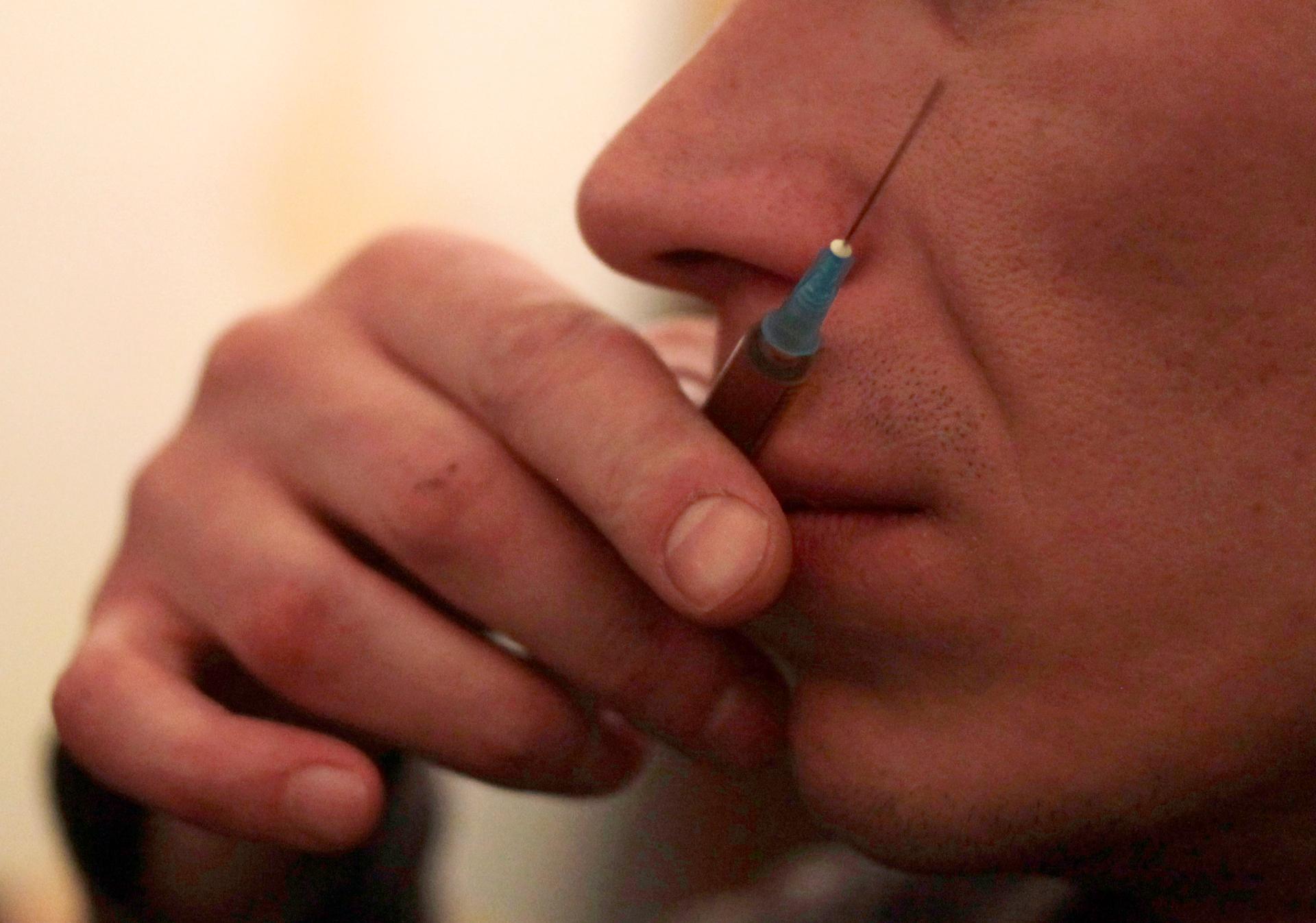A police chief who helps, not jails, heroin addicts
A man checks with his lips the temperature of syringe with heroin.
With heroin use surging across America, a suburban police chief is trying something new.
“We couldn’t just sit around and wait for the bodies to continue to turn up,” said Frederick Ryan, police chief in the Boston suburb of Arlington. The number of overdose deaths and non-fatal overdoses in his town was set to double in 2015 versus the year before. Arresting and fining people had been ineffective in combating the problem and in searching for alternative ways to address the epidemic, the concept of police assisted recovery came up.
It’s a program that attacks the demand for heroin, not just the supply.
The Arlington plan of action also addresses the stigma associated with addiction. “We’re seeing that detoxification might occur in a hospital or in a private setting behind closed doors, but recovery occurs in the community. And if we are going to create an environment where addicts can come back to their community … we’ve got to address the stigma associated with addiction,” said Ryan.
“The heroin epidemic has hit the white picket fence,” he said. “I gave an interview to a journalist in a busy retail area recently and a known addict came walking along. I called him over and showed the journalist his tracks marks in his arms and talked about his battle with addiction. And as he went along, an older woman walked out of a hair salon, and she’s known to me because she’s lost her 27-year-old beautiful granddaughter to a heroin overdose. And so right there within that 15-minute window, as I stood on that street corner with that journalist, sort of depicted what communities across America are wrestling with. This no question has hit the suburbs … this knows no socioeconomic, cultural or racial boundaries.”
Arlington’s police identify the drug users in their community through drug dealing criminal investigations, which typically uncover lists and contacts of the customers. Police then go door to door to users and their families with the aid of a full-time social worker and offer their support, working with addicts to get them into treatment. Nasal Narcan, a simple drug used to prevent overdoses, is also made available to addicts and their families.
Trust is another key element to the program and the Arlington Police Department holds regular meetings with the addict community. It's all about building trust on both sides. Ryan emphasized that it's important to set these people up for success or there is a strong likelihood of relapse. It’s a community effort and “we want to get the village behind their road to recovery,” he said.
Ryan said no one is mandated to accept their services and it would be simple for the police to say “this isn’t our job.”
“But it is abundantly clear we need to be proactive,” he said. Enforcement and investigation of those who profit from dealing drugs is still done by his department, but at the end of the day, “we’ll do pro-active outreach. … We’ll do house calls if that’s what it takes.”
This story is based on an interview from To The Point.
